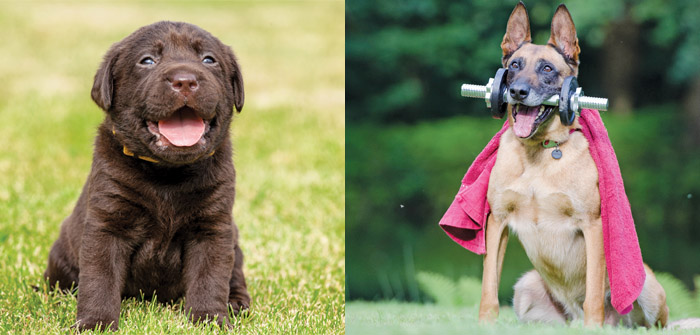(Photos | PxHere)
Pets can’t tell us when they are in distress, ask for directions if they are lost, or tell us they aren’t feeling well. While we should monitor their behavior, we are often distracted and may not notice a problem until it has progressed to a point where the pet needs serious and expensive attention.
This is a big problem for those providing pet services. There’s nothing worse than trying to explain to a pet owner that their beloved furry friend was injured or killed as a result of inattention, but a service often has to manage dozens of pets, so pet behavior is more along the lines of the pet going off and hiding when sick or injured because they can’t point out their injury. This makes timely injury identification very difficult.
To address this lack of communication, several pet health trackers have come to market that both track a pet’s location and the pet’s health so that problems can be identified before they become life-threatening. Let’s explore of few of them this month.
FitBark
FitBark is an enhanced GPS health tracker. Depending on settings, the battery can last from 24 hours for live tracking to up to 6 months for Bluetooth reporting. It is relatively small, works on pets five pounds or larger, and fits on collars up to 1.5 inches wide. As with most products in this class, it is 100 percent waterproof.
FitBark can monitor pet activity and sleep quality to help you determine if your pet is having issues. This could be very important if the pet spends a lot of time with a daycare service because it gives the pet owner additional peace of mind. In addition, it will monitor mobility, anxiety and skin conditions and can catch things like dermatitis quickly. The device uses geofencing and will alert if the pet leaves its designated area.
You can link the FitBark to Fitbit, Apple Watch, HealthKit or Google Fit to get an integrated report of your and your pet’s fitness. Cost is $99.95 plus a monthly subscription fee (from $5.95 to $9.95 per month depending on term).
Tractive GPS Tracker for Dogs
This is another GPS tracker with a host of features that go beyond just location tracking. This one will monitors activity but will also report calories burned and has an interesting location history function if you would like to know who your pet has been going on its nightly jaunts. It is also waterproof, but it will need to be charged every two to five days depending on use (GPS trackers use a lot of power when actively tracking). Tractive is top-rated by Consumer Reports).
This comes in a dog or a cat version and reports a wellness score for the pet that includes sleep quality. The device knows when it is home and on Wi-Fi which allows it to drop into a lower power mode and extends battery life. Price is $49 plus a $6- to $13-a-month charge depending on term. For an extra $1 to $2 per month, there’s a replacement plan that will replace your tracker if it is lost, damaged or stolen.
Whistle
Whistle moves farther in the direction of health monitoring, particularly when it comes to weight gain and obesity. Like some of the other trackers, it can spot dermatitis and other allergy symptoms. The included app has a connection to veterinary help to provide faster intervention and give the veterinarian more data to help with diagnosis and treatment. This is one of the first deep-data trackers that includes alerts to a pet’s anxiety, allergies, arthritis, injury, lack of activity, pain, stomach problems, separation anxiety and more.
Battery life is around two months per charge which can take up to 90 minutes. This is best for mostly indoor pets since outdoor tracking is not GPS-based and is far more limited to proximity to the owner or home Wi-Fi. Because of its high health focus, this device requires a seven-day calibration period to start so that it has a baseline to work from. The cost is $69 plus a $40 annual subscription for the services, including some limited veterinarian calls.
Wrapping Up: Generative AI Trackers Coming
The first two trackers are focused mostly on tracking with health monitoring layered on as extras while the third is a less capable tracker but has deeper health monitoring, so it’s more ideal for an older pet that is unlikely to roam or run away but is in greater need of health monitoring.
Generative AI is having a major impact on most technology markets and will eventually be available for pet health trackers as well. Once that happens, the level of information from our pets is likely to increase dramatically.
Until then, FitBark and Tractive represent the best trackers and Whistle the best health-centric tracker, and they may be an ideal part of any pet service where the pet’s health, safety and location are paramount.





